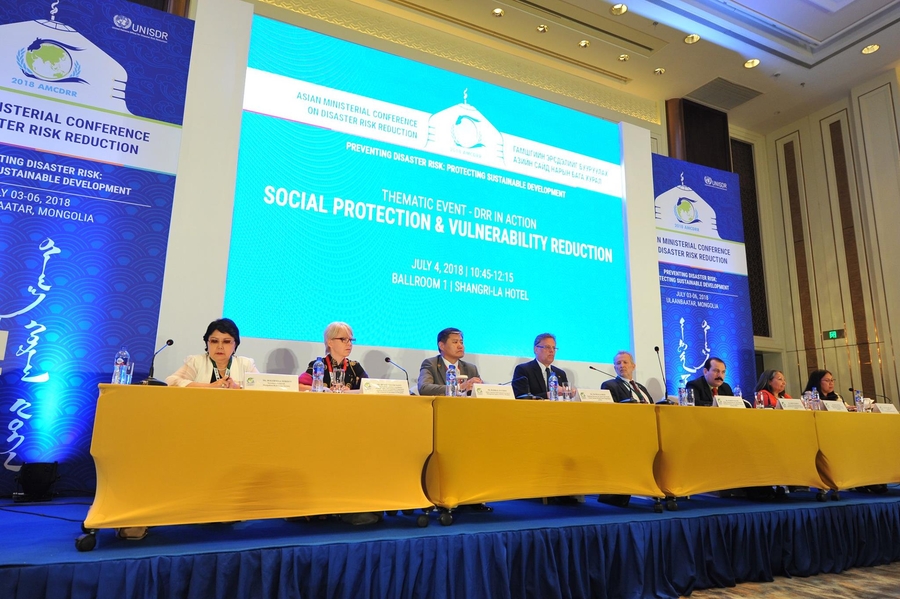ID :
497111
Wed, 07/04/2018 - 13:29
Auther :
Shortlink :
http://m.oananews.org//node/497111
The shortlink copeid
SOCIAL PROTECTION AND VULNERABILITY REDUCTION DISCUSSED

Ulaanbaatar /MONTSAME/ The AMCDRR thematic event ‘Social Protection and Vulnerability Reduction’ focused on how to leverage social protection programming, cash-based assistance and forecast-based financing to build the resilience of vulnerable and hazard-exposed households and communities.
At the beginning of the session, five focal points regarding this issue including targeting, forecast-based prevention, integration, empowering communities and dignity were pointed out by Martin Faller, Deputy Regional Director of the International Federation of Red Cross and Red Crescent Societies.
The case studies showcased current practices in social protection while exploring opportunities to expand existing social protection schemes to address resilience. The recommendations on how Asia-Pacific countries can adjust existing social protection schemes, or put in place new ones, to build the resilience of communities in the face of a growing number of natural hazards were introduced at the session.
Mr. Idrees Mahsud, representative of the National Disaster Management Authority of Pakistan introduced the social protection mechanism and strategies of Pakistan. He emphasized the importance of proper database (national registration) and delivery system in financing reconstruction.
Ms. Lilian Mercado Carreon, Asia Regional Director of the Oxfam International said that the targeting is important in reducing and preventing the poverty. She also emphasized the importance of information based system when developing a social protection policies. Prevention and preparedness are more cost effective than disaster assistance.
UNDP Resident Representative Ms. Beate Trankmann and Secretary General of the Mongolian Red Cross Society Ms. N.Bolormaa introduced the unique disaster dzud (summer with droughts followed by severe winter) Mongolia. The dzud is driven by climate change and has a major socio-economic impacts. Ms. Beate Trankmann said that the early responds to dzud focused on humanitarian assistance during and after disaster. However, it is now important to monitor the commonly affected areas and develop mechanisms of early warning in order to minimalize impacts of the disaster.
The panelists agreed that the preparedness, forecast-based financing and early warning will improve the community based approach.
B.Misheel





